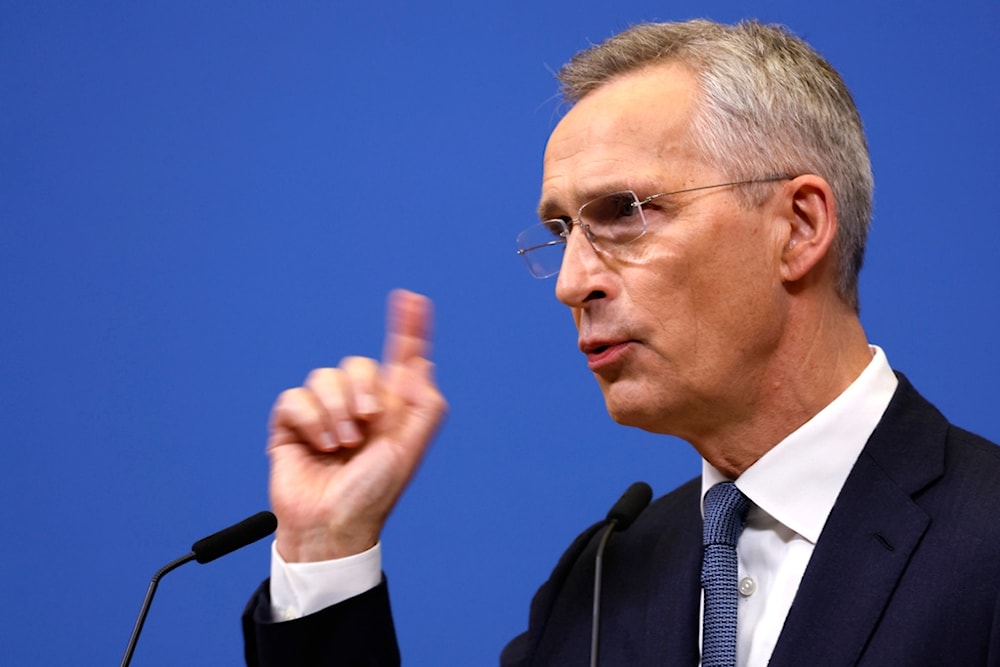Stoltenberg says NATO must keep Ukraine's membership process simple
Unlike the European Union, where candidate status precedes full membership application, Ukraine's process should maintain its current streamlined approach within NATO, the NATO chief said.
-

NATO Secretary General Jens Stoltenberg addresses a media conference during a meeting of NATO foreign ministers at NATO headquarters in Brussels, Wednesday, April 3, 2024 (AP)
At a press conference during the NATO foreign ministers' meeting in Brussels on Wednesday, NATO Secretary General Jens Stoltenberg said that NATO should refrain from altering Ukraine's membership procedure from a one-step to a two-step process.
Unlike the European Union, where candidate status precedes full membership application, Ukraine's process should maintain its current streamlined approach within NATO, he said.
"We should not introduce something that is similar to a kind of second or two-step process … when an invitation is issued then that's the same as becoming a member as it is in NATO. That's the difference between NATO and the European Union. In the European Union, of course, when you're invited, it can take years from an invitation to membership," Stoltenberg said, adding that Ukraine's membership in NATO is a "question of when, not if."
Read more: 'Idiots' in NATO countries pushing world to WWIII, says Medvedev
Concerns have been mounting among allies about the potential of third World War as NATO contemplates signing in Ukraine into the alliance.
In February, Italian Foreign Minister Antonio Tajani said that granting Ukraine membership into NATO, while engaged in a war with Russia, is "dangerous for everybody" and that "for a full member of NATO, this would mean World War III."
Likewise, in January, Prime Minister of Slovakia Robert Fico said that Slovakia will block Ukraine's bid to join NATO "because that is exactly the basis of the third world war and nothing else."
Despite fears of a potential full-scale war between Russia and the alliance, news reports have already revealed the covert presence of NATO troops in Ukraine.
On March 10, Polish Foreign Minister Radoslaw Sikorski openly said that NATO forces are already in Ukraine.
Moscow has repeatedly warned that NATO's provocations and threats to its national security might lead to a direct confrontation between Russia and the coalition. Many Western officials have also expressed fear of such a scenario, opting not to get too involved in the war, including in the type of aid they provide Kiev. Such is the case with Germany and its refusal to provide Tauraus missiles to Kiev.
Read more: Scholz fears complicity if Germany supplies Kiev with Taurus missiles

 3 Min Read
3 Min Read











